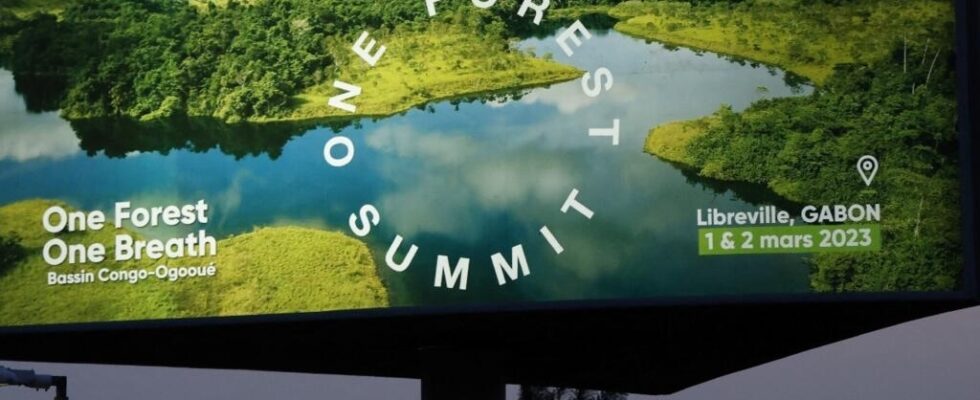It is in Libreville that is launched, this Wednesday, March 1st, the One Forest Summit, high-level summit on the protection of tropical forests. Several heads of state and government are expected, including Frenchman Emmanuel Macron, Congolese Denis Sassou Nguesso, Gabonese Ali Bongo of course, but also Angolan João Lourenzo and Central African Faustin-Archange Touadéra. On the menu, the protection of the forests of the Congo Basin, in Central Africa, straddling Congo-Brazzaville, the DRC, Cameroon, the Central African Republic, Equatorial Guinea and Gabon.
With our special correspondent in Libreville, Paulina Zidi
The idea of this high-level meeting, confides one of the organizers, is to start discussions around three blocking factors. First, there is the lack of scientific knowledge about these forests. Specialists say they are sorely lacking markers, models to see the evolution in the face of climate change. It is therefore necessary to fund scientific programs.
Another line of work: the absence, today, of a sustainable value chain. If we produce responsible wood, we must be sure to sell it, explains a diplomat who took part in the discussions. We therefore need companies that commit to buying it when it will be more expensive, he adds.
Finally, and this is probably the most sensitive subject: carbon financing. Congo Basin forests are today those that capture the most greenhouse gases, and countries want to monetize this role. Paying the ton of CO2 – 3 to 5 dollars – does not make sense, believe the specialists, who call for fixing the price between 30 and 50 dollars.
It is urgent to mobilize funds to train young researchers who will continue inventories and follow up in reference sites to understand the functioning of the Congo Basin forests.
One Forest Summit: Bonaventure Sonké’s point of view
This One Forest Summit does not convince everyone. ” We can expect announcements, but it will always be announcements », Explains an environmental activist present in Libreville. Especially since there will be major absences: the presidents of the DRC, Félix Tshisekedi, and of Brazil, Luiz Inácio Lula da Silva. Their two countries have the most tropical forests, but they have no plans to make the trip.
► To read also: The Gabonese issue of Emmanuel Macron’s tour in Central Africa
Young people don’t lack ideas
Before the opening of the One Forest Summit, young Africans and Europeans held, on Tuesday 28 February, the One Youth Forest Summit. What do they expect from the meeting which opens this Wednesday? What will be their contribution? Our correspondent in Libreville, Yves-Laurent Gomawent to meet them.
Paulin Lokonda is an environmental student in Kinshasa. He came to plead for the reduction of the use of firewood in the villages and encourage the planting of 1,000 trees per year:
” If each university succeeds in planting at least 1,000 trees per year, we will be rewarded for all that we have exploited. It will benefit the global and African community. »
Young volunteer on environmental issues, Mbake Ndiaye, from Senegal, takes part in an agricultural and reforestation project. She explains :
” There is reforestation on the mangrove side. There is reforestation on the mainland side. To protect the environment, there are many reforestation campaigns being carried out. »
Under tents, Gabonese students from the National School of Water and Forests exhibit a nursery and cosmetic and consumer products extracted from trees. They are united in an association led by Jerry Moundounga, who develops their project:
” We help the forest concessions to be able to have nurseries to allow them, when they do the cutting, to replant. Today, the solution that has been put in place is these nurseries to say ”we cut but we reforest”. »
After their summit on the forest, the young people want their projects to benefit from technical assistance and funding from donors for their implementation.
